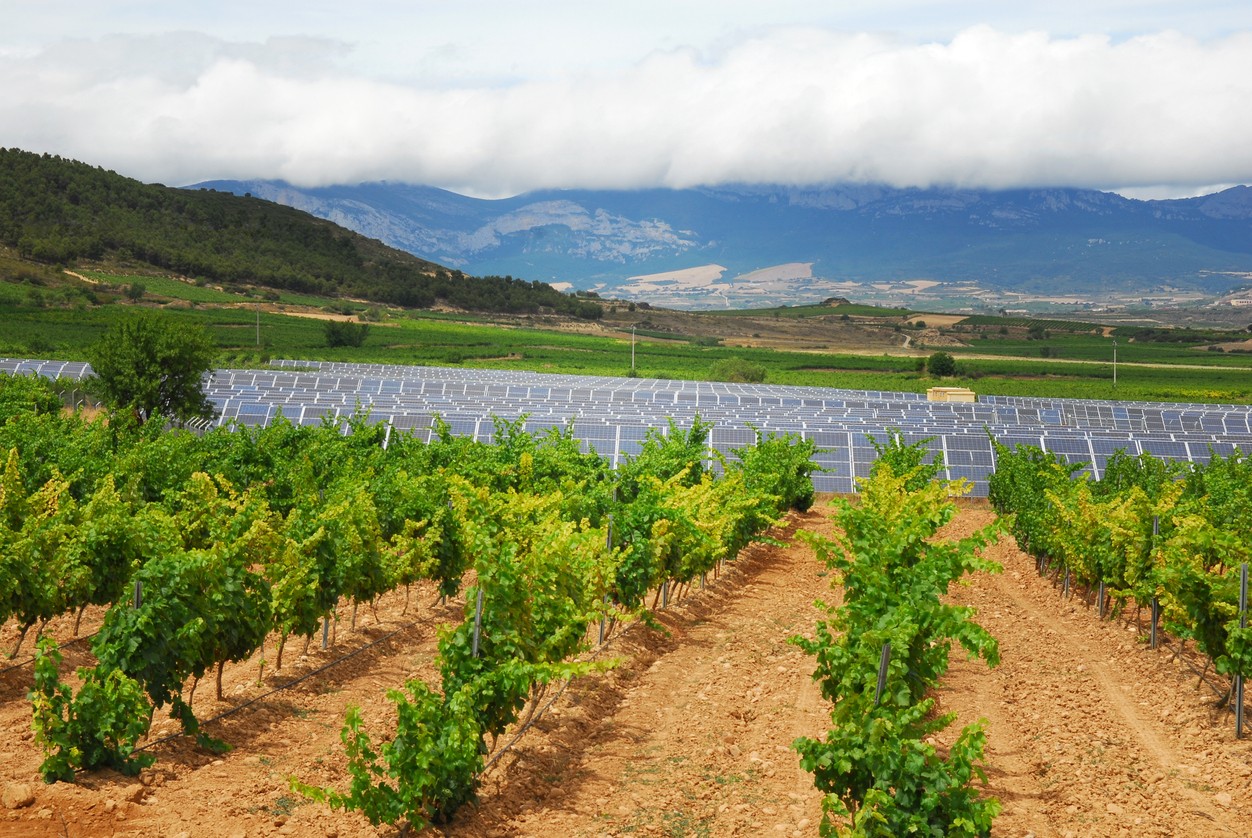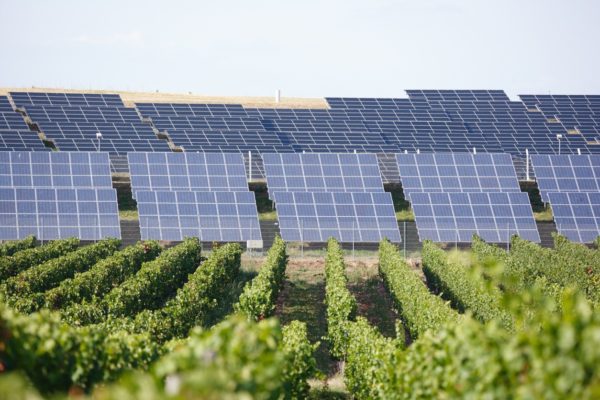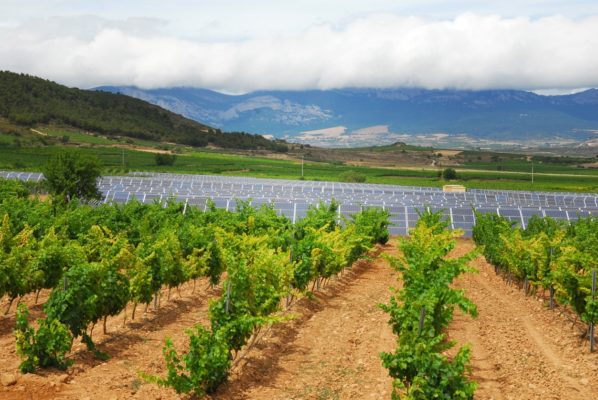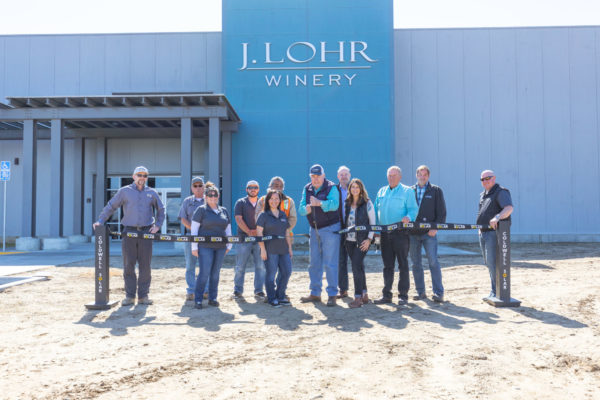
More and more companies are discovering the advantages of using solar energy on their premises as the amount of power output from solar energy in the United States keeps growing. This kind of small-scale solar power is increasing in the industrial and commercial sectors. It is more prevalent than in California, which produced 43% of the nation’s small-scale solar output in 2016.
Furthermore, California produces the most wine among other states in the US; it would have been ranked as the fourth-largest wine producer if it were a separate nation.
However, California leads the world in vineyards and solar energy; it stands to reason that the state’s wineries have rapidly increased. In this article, we will address how much these wineries are harvesting solar energy and which wineries are making the most significant efforts to install solar power systems.
Solar wineries use solar energy systems to meet electricity needs. We will discuss how solar energy is powering California’s wineries.
How is Solar Energy Powering Wineries?

Wineries across the globe have built solar systems to meet all or part of their energy requirements after realizing the advantages of solar energy. California is a state that has the most to offer in terms of scale, policy, and climate to effectively promote both the solar and wine sectors. Several wineries in the state have switched to solar energy to meet their energy needs.
Although California is not the only state embracing solar energy at a fast pace, there are several reasons why the state was destined to take the lead in the country.
California tops the list for producing solar energy in the US to the point where it has to pay other states to take the extra power they create off their hands. California’s leadership in solar energy is due to the following factors:
- It has a climate with plenty of sunshine, with California having the second-highest number of sunny days per year.
- California is the third-largest land area in the US, meaning more rooftops and open spaces are available for solar panel installation.
- In California, the public is overwhelmingly in favor of measures that encourage the use of solar energy and expanded solar power generation.
- The state of California has several policies that are very supportive of solar energy, such as the California Solar Initiative, which offers several financial incentives to support solar installations, and the Renewable Portfolio Standard, which mandates that 33% of the state’s electricity come from renewable sources by 2020.
Wineries in California
California isn’t the only state producing wine, but it controls the US wine market in terms of output volume and wine quality standards. California produces 90% of the wine consumed in the United States, and many experts believe that the quality of California wine is now at an all-time high.
- Apart from being one of the biggest states, California is also home to a remarkable range of fresh, seasonal crops, with more than 110 wine grape varieties farmed there.
- California has a longer growing season than other states due to its sunny climate.
- California has a long-standing viticulture tradition dating back to the 18th century, resulting in the state’s abundance of wineries and vineyards with strong ties to their local communities. It is a land cultivated over centuries to be perfect for wine grapes, and a thriving business environment was created to ensure the industry’s success.
Wine Industry and Solar

California has massive advantages and is rapidly developing in the wine and solar sectors. These two industries have a special link and perfectly fit solar energy into wine markets.
California is such a friendly place for solar energy and winemaking. The natural issue is how the two can be integrated into a mutually beneficial partnership. Due to the various advantages solar electricity offers the winemaking industry, wineries have been installing and utilizing it for years.
Since 1999, Fetzer Vineyards has operated entirely on renewable energy, while Shafer Vineyards has relied solely on solar energy since 2004.
There are many reasons why solar power functions flawlessly as an energy source in wineries and related enterprises. One reason is that solar panel technology is most effective at a temperature of about 77 degrees Fahrenheit, where it can collect sunlight even on cloudy days.
This warm and temperate climate is also ideal for growing wine grapes. Additionally, compared to non-agricultural enterprises, operations at wineries often have a wide footprint, making it simpler to find space in fields or on roofs for commercial solar panels.
Because solar panels are so widely available, wineries can utilize the energy they collect from the sun to power various buildings, including their primary residence, tasting rooms, offices, workshops, and other business-related items.
Solar energy benefits the wine industry more than many other sectors and offers unique advantages to wineries that go out of their way to build solar power systems. The technology itself is dependable over a long time. The warranties last 20 to 25 years, while the service life is 40 to 50 years. The economics are so high that wineries may make a 20% return on their investment in solar panels.
The amount of solar energy generated at some wineries can often exceed what is required to run the winery, allowing business owners to sell the excess energy back to utilities. However, this form of net metering is currently the subject of a contentious policy debate.
As a result, the technology is even being developed for on-site microgrids intended for peak shaving, load balancing, and self-consumption.
Those who work in the wine industry have a personal interest in boosting the usage of renewable energy sources to decrease greenhouse gas emissions contributing to climate change.
In addition to the challenges faced by all agricultural businesses due to extreme weather and droughts, wine grape vines are particularly sensitive to temperature changes brought on by climate change.
Recent wildfires in California, which are more likely to occur as climate change continues, also highlight the damage that such fires can do to the wine industry. The wine sector should adopt clean technologies like solar for effective production.
Benefits of Solar Energy for Wineries

California is one of the top wine-producing states in the US. Many business owners are thinking about saving costs while boosting their resilience and environmental responsibility as wine culture (viticulture) and wineries and vineyards prosper.
Solar energy may protect them against power interruptions and enable wineries and vineyards to cut or even completely remove their carbon footprints. Here are some advantages of solar energy for wineries:
1. Reduces Energy Costs for Wineries
It takes a lot of energy to grow, harvest, and process grapes to make wine. The machinery and equipment used along the way require a lot of energy to ensure the efficiency and quality of the winemaking process. These energy requirements can be quite costly and reduce earnings.
Making sure the grapes thrive from the start is essential to the winemaking process. This necessitates that the grapevines have a steady water supply, often in the form of irrigation lines. Pumping the water through these irrigation systems consumes a lot of energy, especially during dry spells.
The subsequent phases in the winemaking process also demand a lot of energy. The wine must be matured once it has been produced. The wine must be kept at a steady temperature and humidity level while it ages. This uses a lot of energy and necessitates running humidifiers and refrigeration for years.
These are all very energy-intensive phases in the winemaking process. Additionally, each of these steps is cost-effective.
Wineries and vineyards can generate their own electricity by installing solar panels, drastically lowering or eliminating their energy costs. These savings can boost winery and vineyard income, boosting the company’s operations to grow and gain a competitive edge.
2. Batteries and Solar Provide Resilience
Businesses like wineries and vineyards need consistent and dependable energy sources. Any stage in the winemaking process that goes wrong could have disastrous results.
For example, acres of grapevines may become stunted or even die if irrigation pumps cannot pump water. The unfermented grape mixture is wasted if fermenting tanks lack electricity. Hundreds to thousands of bottles of wine could spoil if the refrigeration system fails.
For this reason, several wineries and vineyards are switching to solar and battery systems. Wineries and vineyards can ensure every step of the winemaking process is resilient and safeguarded against power outages by installing solar panels and batteries. It provides businesses with a certain level of profit protection.
Additionally, solar can offer resistance to other unforeseeable difficulties, like drought. According to research, there are more heat waves and droughts every year. Vineyards and wineries are getting more and more concerned about these climate changes.
Wineries and vineyards can improve their capacity to respond to drought conditions with commercial solar installation. The energy generated by their solar panels can be used to balance the increased need to pump water to their vines and to cool their building and storage. This can lower significant and unplanned expenses while also preserving revenues.
3. Improves Business Image
Solar panels can enhance a company’s reputation by lowering costs, protecting revenues, and supplying resilience. Consumers generally are becoming more aware of their carbon footprints. This involves being aware of the origins of their wine and how sustainably they can produce it.
Many wineries and vineyards may show their dedication to lowering or eliminating their carbon impact by installing commercial solar panels. Customers will notice your company’s use of solar panels since they will serve as a physical reminder that they contribute to environmental protection and energy supply.
Get Help From Coldwell Solar
Solar energy has many advantages for vineyards and wineries in California. Solar panels can improve and protect revenues and reduce energy expenditures. Additionally, using solar panels and batteries, you can protect your wineries and vineyards from power disruptions and show your clients that you care about the environment.
Solar electricity is being installed at multiple vineyards and wineries in California. The advantages of solar energy and the existing financial incentives for industry and agriculture have persuaded them that now is the perfect moment to switch to solar power.
Contact Coldwell Solar for detailed information regarding commercial solar installations for your wineries.

